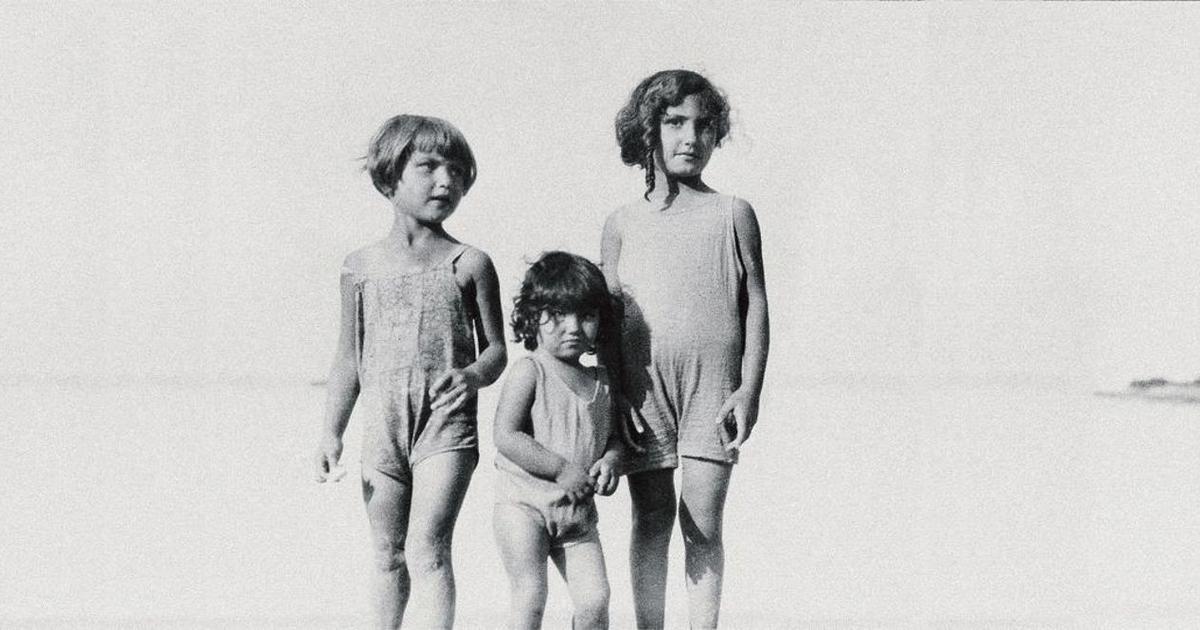All the happiness in the world.
The joy of living in a united and loving family based in Nice.
This happiness, Simone Jacob (who will marry Antoine Veil in 1946) savored it with her parents, Yvonne and André, her sisters, Madeleine, nicknamed Milou, and Denise.
Without forgetting their brother, Jean.
Over the course of extracts from letters and diaries read in voice-over by actors - in particular Isabelle Huppert and Mathieu Amalric - and often unpublished archive images, the past is reborn.
The daily life of a Jewish, secular family, perfectly integrated into French society, appears in this documentary entitled
Simone and her sisters
.
An initially peaceful past, therefore, but hit by Nazi barbarism.
This contrast, this shift from heaven to hell, emerges poignantly in this film directed by David Teboul.
To feed his point, the author relies on the eponymous book which he publishes with Éditions Les Arènes on October 13, the day after the release of the biopic that Olivier Dahan devotes to Simone Veil (
Simone, le voyage du siècle
) .
Rebel, Simone has always been
The happy days are described by the words of Simone, read calmly by Céleste Brunnquell.
At the same time, on the screen, black and white pictures show the four children in bathing suits on the beach in Nice.
“When I think back to those happy pre-war years, I feel a deep sense of nostalgia.
Happiness is difficult to convey in words because it was made up of little nothings, confidences between us, bursts of laughter shared, moments forever lost.
It is the scent of childhood, all the more painful to evoke that the continuation was terrible”,
expresses the youngest of the family.
We see her around the age of 5-6 with a round face and a determined gaze, a bit grumpy, which will never leave her.
Rebellious, Simone has always been, as her sister Denise points out.
The latter, engaged in the resistance in October 1943, tortured by the Gestapo in Lyon and survivor of Ravensbrück, died in 2013, four years before her younger sister.
She speaks in an excerpt from an interview given in the 2000s, recalling the establishment, on June 2, 1941, of the compulsory census of Jews in France.
“We knew a little about what was happening in Germany, but without understanding it.
(…) Simone had almost felt it, more than the rest of the family.
And when we had to have “Jew” stamped on our identity cards, Simone was completely opposed to us going to the police station.
And finally we did
.
»
On the other side of the human
After the departure of the Italians in September 1943 and the takeover of Nice by the Germans, everything changed.
A striking letter from Milou to Denise, who has become a liaison officer in Lyon for the Franc-Tireur movement, is read by Isabelle Huppert.
“My darling Denise, what you tell me about yourself saddens me a little.
Your life is not always funny (…).
To rediscover these moments of pure joy (…), we will have to wait until the war is over.
It will be good then to laugh together
.
Simone, aged 16, also writes to Denise and talks about her first love:
"
I saw mum, I spoke to her about Henri, and of course she is not at all delighted and regrets that I am no longer a little baby
.
»
On March 30, 1944, Simone, Milou, Jean and their mother, Yvonne, were arrested by the Gestapo.
On April 7, they are imprisoned in Drancy.
Simone, Milou and their mother get on convoy 71 on April 13 for Auschwitz-Birkenau.
Simone Veil, in an interview given at the end of her life, remembers the arrival at the camp:
“It was at night, around midnight: the searchlights, the dogs barking, the SS shouting (…).”
Yvonne will die in Bergen-Belsen.
Deported to Lithuania, André and his son, Jean, will never return.
Milou will survive but will die in a car accident in 1952. A destiny that Simone summarizes as follows:
"What marked me the most was to have passed on the other side of the human."
■
Note the publication, on October 19, of an unpublished book by Simone Veil,
Only hope soothes pain
(Flammarion-INA).

